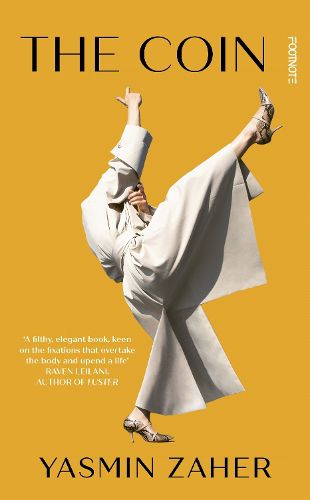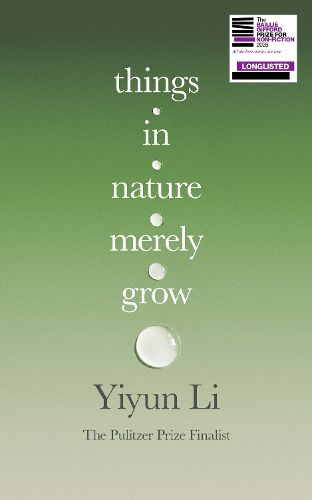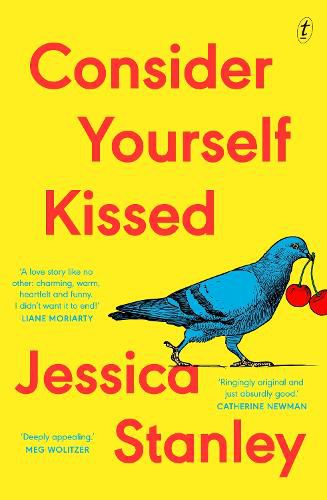Hear about the great books, new and old, that our wonderful staff have been enjoying.
Joanna has been reading
The Coin
Yasmin Zaher
In this humble bookseller’s opinion, Yasmin Zaher’s debut novel, The Coin, is a rather remarkable creation. It’s a bold novel that feels like it’s been excavated from some deeply personal place. But it’s very much a work of fiction – beautifully realised, paced and constructed, and unique, too, which feels vital right now. The Coin is impressive in all the ways that matter most when we talk about fiction, and I’m excited to be diving deep into what those ways are with the Hidden Treasures fiction book club in July.
The Coin is narrated by a young, wealthy Palestinian woman living in New York City. In addition to teaching at a school for underprivileged boys, using highly unorthodox methods, she spends much of her spare time obsessing about dirt – on the street, in her apartment, on her carefully curated luxury wardrobe, and most frequently, on her own body, which she regularly submits to fervent, extensive cleaning rituals. She’s also grappling with the car accident that killed her parents when she was young; with memories of her homeland and the idea of home; and of course, with the coin itself, of which I’ll say nothing more here. There’s also a comic and caustic subplot about an international Birkin bag resale scheme that she’s drawn into by a homeless conman known only as Trenchcoat.
In some ways, The Coin is an indescribable book that I worry is potentially diminished by reducing it to the elements of its plot. Reading it is an experience akin to entering a dreamscape of high contrasts – detached, cool narration, visceral, savage observations, provocative humour, sadness and longing. Every detail has been polished to perfection, yet it’s a raw reading experience, and a heartbreaking one. It recently won the Dylan Thomas Prize, awarded to a writer in English under 39. A well-deserved mark of distinction for such an extraordinary piece of writing.
Fiona has been reading
Things in Nature Merely Grow
Yiyun Li
Describing this book sounds devastating: Pulitzer Prize finalist Yiyun Li loses one young son, then another, to suicide, then writes about it. Instead, this book is beautiful. Yet, it doesn't shy away from the reality of the situation – it is about a sad thing, but is, somehow, not sad.
Li talks about the practicalities – the visit from the police, still buying the house you settled on the same day, working, living – and she is surgically precise, but never distant. Instead of being horrific, Things in Nature Merely Grow feels loving, and realistic. It is about radical acceptance, the value of people around you who know you, but also know your departed loved ones; it's about the way the world wants to put a timeline on grief but it does not have to be rushed when you can think about those you love every day for the rest of your life. It's a slender book, and I haven't finished it yet. Not because I don't have time, but because while I usually read books I can tear through, this is one to dog-ear the pages of, and to sit with for as long as you need.
Lian has been reading
Consider Yourself Kissed
Jessica Stanley
I've been reading Consider Yourself Kissed, Australian author Jessica Stanley's sophomore novel. I went into it a bit blind, not knowing quite what to expect, and have found myself entirely absorbed by this portrait of what happens after the happily-ever-after of a contemporary love story.
Starting in London in 2013, Consider Yourself Kissed follows its protagonist Coralie through a decade of momentous events, both personal – falling in love, losing her mother, having children – and political – Brexit, Trump's first presidency, Boris Johnson, the global pandemic. Novels about women-of-a-certain-age throwing off the stifling trappings of domestic bliss are hot property right now (think All Fours, Mother Tongue, Nightbitch), but Consider Yourself Kissed is so firmly grounded in reality – both in its impeccable depictions of place and time, and by its immaculately-conceived cast of characters – that I've found it almost painful in its relatability. It's a love story that recognises that love waxes and wanes; it's a story about politics and the experience of being buffeted by global forces outside our control; it's a story about how the trauma of our upbringing shapes our adult selves; and, mostly, it's about life. I adore it.





